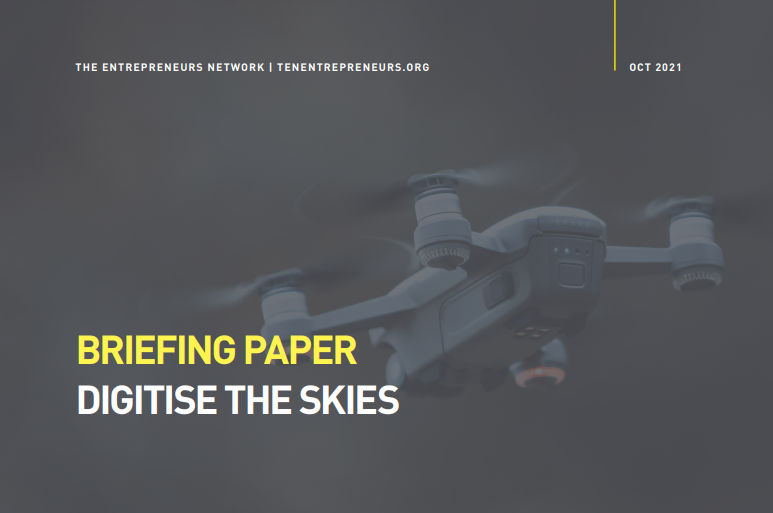The UK think tank The Entrepreneurs Network has released a report calling for funding and ministerial support for the drone industry. A briefing paper entitled Digitise the Skies calls for government investment of GBP10 million to help all recreational aircraft in the UK to become electronically conspicuous. The funding could be crucial to unlocking the full GBP42 billion potential contribution of drone technology to the UK economy by 2030, says the paper.
The drone economy is set to be worth GBP42 billion to the UK by 2030, according to a separate report, by PwC. This will not be realised, however, without Government intervention to make all recreational aircraft electronically visible to drones, say ‘Digitise the Skies’ co-authors Sam Dumitriu and Anton Howes. The authors also call for the appointment of a government Minister of Drones.
Drones and commercial manned aircraft are made visible to each other and to novel traffic control systems by small onboard electronic devices that communicate their location to minimise the risk of collision. The UK’s 20,000 recreational aircraft, which typically operate in the same sub-10,000ft “Class G” airspace as drones, are not required to be electronically conspicuous – making mass rollout of commercial drone applications unviable on safety grounds – but could be made so at a cost of just GBP500 each.
Digitise the Skies highlights a wealth of potential drone applications, including most immediately in the inspection of airports, railways, roads, buildings, powerlines and other critical infrastructure, where using drones would dramatically decrease costs and improve efficiency by enabling problems to be identified and resolved more quickly. Drones could also cut costs and reduce environmental impacts in agriculture by enabling specific crops in need of special attention to be more easily identified.
More complex – especially given that UK airspace is already among the busiest in the world – but already being trialled, is the use of drones to improve access to hard-to-reach places for the delivery of food, medicine, or even just post. Even in densely-populated and well-connected areas, drones could help the NHS move testing kids, vaccines, blood bags, or even organs more quickly to where they are urgently needed.
Digitise the Skies calls on the Government to foot the one-off £10 million bill for equipping the UK’s recreational aircraft with electronic conspicuity devices, noting that the minimal investment could remove a major barrier to the advancement of drone technology and drone-led services and help make projections of a GBP42 billion drone economy by the end of the decade a reality.
For more information visit:




